Filter by

Arterial Stiffness: Implications and Interventions
Arterial stiffness is an emerging risk factor with important implications for cardiovascular disease risk. Herein, we concisely summarize the physiological and pathophysiological aspects of arterial stiffening, and highlight the importance of increased arterial stiffness for future cardiovascular events. Factors contributing to increased arterial stiffness such as advancing age, obesity, race, …
- Edition
- Ed. 1
- ISBN/ISSN
- 978-3-319-24844-8
- Collation
- VIII, 61
- Series Title
- SpringerBriefs in Physiology
- Call Number
- 616.12 FLE a

Arterial Chemoreceptors in Physiology and Pathophysiology
Every three years, the International Society for Arterial Chemoreception (ISAC) arranges a Meeting to bring together all of the major International research groups investigating the general topic of oxygen sensing in health and disease, with a prime focus upon systemic level hypoxia and carotid body function. This volume summarises the proceedings of the XIXth meeting of the Society, held in Le…
- Edition
- Ed. 1
- ISBN/ISSN
- 978-3-319-18440-1
- Collation
- XI, 404
- Series Title
- Advances in Experimental Medicine and Biology
- Call Number
- 615 ART a
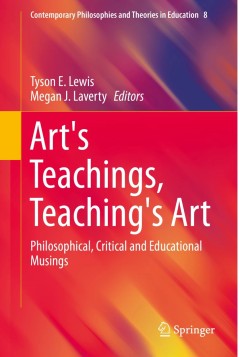
Art's Teachings, Teaching's Art: Philosophical, Critical and Educational Musings
This volume examines the interface between the teachings of art and the art of teaching, and asserts the centrality of aesthetics for rethinking education. Many of the essays in this collection claim a direct connection between critical thinking, democratic dissensus, and anti-racist pedagogy with aesthetic experiences. They argue that aesthetics should be reconceptualized less as mere art appr…
- Edition
- Ed. 1
- ISBN/ISSN
- 978-94-017-7191-7
- Collation
- XI, 249
- Series Title
- Contemporary Philosophies and Theories in Education
- Call Number
- 370 ART a

Wandering the Wards : An Ethnography of Hospital Care and its Consequences fo…
Wandering the Wards provides a detailed and unflinching ethnographic examination of life within the contemporary hospital. It reveals the institutional and ward cultures that inform the organisation and delivery of everyday care for one of the largest populations within them: people living with dementia who require urgent unscheduled hospital care. Drawing on five years of research embedded in …
- Edition
- -
- ISBN/ISSN
- 9780367644482
- Collation
- -
- Series Title
- -
- Call Number
- 301
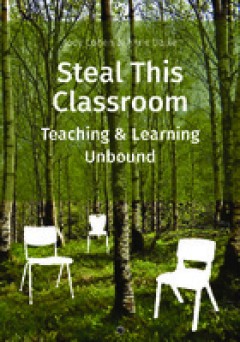
Steal This Classroom : Teaching and Learning Unbound
Jody Cohen and Anne Dalke construe “classrooms” as testing grounds, paradoxically boxed-in spaces that cannot keep their promise to enclose, categorize, or name. Exploring what is usually left out can create conditions ripe for breaking through, where real and abstract reverse and melt, the distinction between them disappearing. These are ecotones, transitional spaces that are testing groun…
- Edition
- -
- ISBN/ISSN
- 9781950192380
- Collation
- -
- Series Title
- -
- Call Number
- 101

Heidegger and Development in the Global South
Taking the Heideggerian critical ontology of technology as its base, this volume looks at postcolonial modernization and development in the global south as the worldwide expansion of the western metaphysical understanding of reality. We live today in an increasingly globalizing technological society that Martin Heidegger described in the middle of the last century as ‘the planetary imperialis…
- Edition
- -
- ISBN/ISSN
- 978-81-322-2303-0
- Collation
- XIX, 309
- Series Title
- -
- Call Number
- 300 GEO h
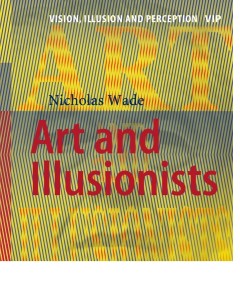
Art and Illusionists
We delight in using our eyes, particularly when puzzling over pictures. Art and illusionists is a celebration of pictures and the multiple modes of manipulating them to produce illusory worlds on flat surfaces. This has proved fascinating to humankind since the dawning of depiction. Art and illusionists is also a celebration of the ways we see pictures, and of our ability to distil meaning from…
- Edition
- Ed. 1
- ISBN/ISSN
- 978-3-319-25229-2
- Collation
- XII, 386
- Series Title
- Vision, Illusion and Perception
- Call Number
- 006.3 WAD a

Handbook of the Band Structure of Elemental Solids From Z = 1 To Z = 112
This handbook presents electronic structure data and tabulations of Slater-Koster parameters for the whole periodic table. This second edition presents data sets for all elements up to Z = 112, Copernicium, whereas the first edition contained only 53 elements. In this new edition, results are given for the equation of state of the elements together with the parameters of a Birch fit, so that…
- Edition
- -
- ISBN/ISSN
- 978-1-4419-8263-6
- Collation
- XV, 655
- Series Title
- -
- Call Number
- 530 PAP h
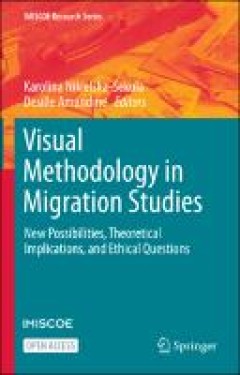
Visual Methodology in Migration StudiesNew Possibilities, Theoretical Implica…
This open access book explores the use of visual methods in migration studies through a combination of theoretical analyses and empirical studies. The first section looks at how various visual methods, including photography, film, and mental maps, may be used to analyse the spatial presence of migrants. The second section addresses the processual building of narratives around migration, thereby…
- Edition
- -
- ISBN/ISSN
- 9783030676087
- Collation
- -
- Series Title
- -
- Call Number
- 778.53
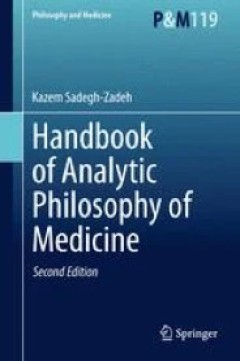
Handbook of Analytic Philosophy of Medicine
Kazem Sadegh-Zadeh (born 23 April 1942) is an analytic philosopher of medicine. He studied medicine and philosophy at the German universities of Münster, Berlin, and Göttingen with Internship and residency 1967-1971, assistant professor 1972-1982, full professor of philosophy of medicine at the University of Münster 1982-2004. Sadegh-Zadeh was born in Tabriz, Iran. He has made significant co…
- Edition
- -
- ISBN/ISSN
- 978-94-017-9578-4
- Collation
- XXXVIII, 1224
- Series Title
- -
- Call Number
- 610 SAD h
 Computer Science, Information & General Works
Computer Science, Information & General Works  Philosophy & Psychology
Philosophy & Psychology  Religion
Religion  Social Sciences
Social Sciences  Language
Language  Pure Science
Pure Science  Applied Sciences
Applied Sciences  Art & Recreation
Art & Recreation  Literature
Literature  History & Geography
History & Geography